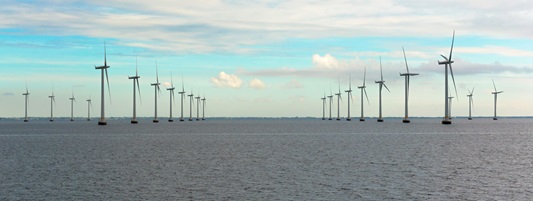Overcoming risks and barriers to renewable energy investment
Scaling up renewables in line with their potential to meet energy security and climate objectives requires significantly larger investment than currently forecasted. While the bulk of investment will need to come from the private sector, public capital providers (such as multilateral and national development institutions) have an important role to play in terms of mobilizing private sources.
Although renewable energy investment trends are mostly positive, there are persistent barriers that prevent the private sector from accessing many of the existing investment opportunities. IRENA’s report Unlocking renewable energy investment: the role of risk mitigation and structured finance identifies the main risks and barriers to renewable energy investment, and provides policy makers and public finance institutions with a strong portfolio of measures, instruments and tools that can be used in combination to mobilise private investment at scale.
Scaling up investment volume through streamlining solar project documentation
The existing contractual framework for renewable energy projects is over-complicated and originally designed for large-scale and technically complex conventional power generation. The overwhelming contractual documentation requirements result in high transaction costs and prolonged project development and finance timelines; hindering further increase in global renewables capacity.
As a response to the need for a simplified and streamlined contractual framework to unlock greater investments in renewable energy, IRENA and the Terrawatt Initiative (“TWI”) jointly launched the Open Solar Contracts initiative. By simplifying and streamlining contracts for solar PV, the Initiative aims to reduce project review time and transaction costs, and provide a basis for aggregating and securitising assets to scale up investment volume. The initiative provides a comprehensive and universally-applicable standardised contractual solution for solar power projects.
The standardised contracts include: (i) Power Purchase Agreement, (ii) Implementation Agreement, (iii) Supply Agreement, (iv) Installation Agreement, (v) Operations and Maintenance Agreement and (vi) Finance Facility Term Sheet; and cover most of the contractual requirements for a solar power project..
The standardised contracts are now finalised and ready for download.
Enhancing national capacities for implementing and financing renewable energy
The capacity constraints to take projects from concept to implementation and to lend to renewable energy projects represent two major barriers to enhanced fund flows to renewable energy projects. In response to this need, IRENA initiated capacity building programs for domestic financing institutions and public institutions with the initial pilots in Small Island Developing States (SIDS).
These capacity building programs, for project development and for project financing, are being implemented with in-house expertise as well as in partnership with international, regional and local stakeholders, to gain from their experience and from best practices globally.





















